There were many sponsor speakers at Leweb. Although they seemed to be everywhere in the agenda, there were hopefully more non-sponsor speakers!
Twitter was a preeminent company at Leweb since it was not only a sponsor but it had its CEO and founder Jack Dorsey talking. And it made a lot of sense since Twitter is a huge part of the real time web phenomenon. Jack spent also significant time in Paris, going to the City Hall for the “.paris” reception, meeting with Queen Rania, talking to @nk_m, etc.
Jack looks like a very cold guy and/or he’s quite shy. In his conversation with Loic Lemeur, Jack told the story of how Twitter came out, that he thought it would be big, how users are redefining the service (mentions, retweets, hash tags, etc). His conversation then switched to a demo of Square, coming out of another startup he’s created, dedicated to mobile payment. His solution includes a small self-powered cubic device that you attach to your smartphone through its regular mini-jack connection. It’s a credit card swiper that he plans to give away (no smartcard support). You then pay using a related software solution and sign transactions with the smartphone. Jack had some network problems during demo and his reaction was to say that it worked everywhere besides Paris. Hum hum.
There was also a talk from Ryan Sarver, Director of Platform at Twitter, who made a couple announcements. The most important is the release in Q1 2010 of its Firehose APIs enabling developers to retrieve real-time Tweets in their applications. Twitter also elaborated a bit on its business model that would be based on shared revenue with applications developers. Like the Apple AppStore? Make sense, but it would require to close the system a little bit. Twitter also said that 50K applications where using its APIs.
Microsoft also had a big presence at Leweb. It’s been a sponsor from the very beginning (at least 2005 I think). It had a large booth for its partners. Jean-Philippe Courtois, President, Microsoft International, was the second sponsor to talk in the main session, right after Jack Dorsey. Jean-Philippe looks like the typical cold corporate guy. He’s been in the company since 1984 and is probably among the 10 first employees still in the company now. He lives in Paris and in airlines, since he spends most of his time traveling the world. You may still wonder if the world is enough for him (!). We could hear all the traditional corporate pitch from Microsoft: how the company helps education in many developing countries, how Bing is so great, competing inch by inch with Google, how they partner with startups with the BizSpark program, how Silverlight and Azure are making inroads (he mentioned 20000 startups on Azure, looks like he mixed that number with the # of startups in the Bizspark program), etc. He announced a partnership with MySpace, seemingly, already uncovered last March 2009, on top of existing (API level) partnerships with Twitter and Facebook.
The best talk from Microsoft, though, was from Dana Boyd, a good expressive speaker and sociologist from Microsoft Research. The VP running the Emerging Business Team, based in Mountain Views, Dan’l Lewin, also participated in some roundtable that I missed. But I had a chance to have a long discussion with him on the whereabouts of Microsoft in Redmond. Under NDA… :).
Google also had a strong presence at Leweb. No booth this time, but a set of workshops dedicated to Chrome OS, YouTube, Android, Wave and the likes. Wise choice even if the workshops were organized in a remote location, behind the main stage.
Google was represented by Marisa Mayer – for a second time – and by Chad Hurley from YouTube. Marisa uses an iPhone and she’s not really talkish on specific numbers: % of mobile searches, #of Chrome downloads. You gotta guess it beyond knowing that it’s just growing fast! She talked a little about the new Music search partnership with Lala, which is available in the US only due to licensing rights. IP address filtering prevents non US users to access it (or you’ve got to use a Proxy or VPN…). Many such services don’t show up in France. I learned it’s one of the reasons why Microsoft Zune is not sold in France, due to its music peer sharing feature (but they could still disable it just for France…). Marisa didn’t tell anything new and it looks that she playing all the stuff she learned in her media training to escape the tough questions (on ongoing discussions with news producers, possibility to have a Google Phone, etc).
Same for Chad Hurley who won’t discuss any revenue numbers on YouTube. Just mentioning the billion videos watched every day.
Facebook was also there through a talk from Ethan Beard, Director of the Facebook Developer Network who talked about Facebook Connect and Identity management.
Pearltrees was the preeminent sponsoring startup in the show. Patrice Lamothe appeared twice. First day in a chat between its CEO, Patrice Lamothe, and Robert Scoble. Explaining the concept of Pearltrees with a nice cartoon. He talked a little about monetization which will mix ads and fremium usage. He talked about opening Pearltrees APIS to automate the creation of pearls and launched officially his beta at Leweb. In his second appearance, on day 2 of Leweb, Patrice did show a demo of Pearltrees and how it curated Leweb related content. I already wrote on Pearltrees, and while its marketing execution is so far excellent, I still doubt this solution will become really mainstream. I hope for him that I’m wrong.
Orange launched its App Shop through a talk of Christophe Francois, Vice President Mobile Multimedia. Most telcos have made such announcements either in 2008 or 2009. They envy the Apple Appstore and would like to maintain some close relationships with their consumers. Obviously for a carrier, its App Shop will support all mobile operating systems besides the iPhone. The shop leverages the Orange Partner program, created 5 years ago. Orange also had a large booth where I saw the UI of the future Intel / Samsung IPTV set-top-box. Still in very rough shape. The STB will be introduced only at the end of 2010.
Mobile Roadie is a tools partner from Leweb. Michael Schneider did show the iPhone nice application he developed for Leweb. His company sells an iPhone development platform.
British Telecom was the most useful partner at Leweb this year. They’ve build the network for the event and it rocked! We can now forget the Swiss Telecom snafu from 2008. They provided interesting data on the infrastructure of Leweb : 2/3 of the connected devices were from Apple, including half of it being iPhones. BT served a 1 Gb/s connection, utilized at a maximum 26%, probably because most users were connected to email and Twitter. The top user sucked 10% of the bandwidth!
At last, there was one institutional sponsorship with the City of Paris represented at Leweb by Jean-Louis Missika, its Deputy Mayor responsible for Innovation, Research and Universities. He did present some digital innovations deployed in Paris and the link between the past and the future such as sewers built in the late 19th century and now used for optical fibers. He explained why the City candidacy to a “.paris” DNS domain at ICAHN. He plans to redistribute domains and subsidize it depending on the size of businesses. It will cost Paris $75K to acquire this domain name. The candidacy process is quite complex and takes a while.
This list wouldn’t be complete without mentioning two talks from long time close friends of Loic Lemeur:
- Ouriel Ohayon, Co- founder of Appsfire.com who presented the results of an iPhone applications contest he organized. His AppsFire solution is about sharing your favorite iPhone applications listings. The data collected can then be sold by AppsFire to companies interesting in the iPhone applications market. Real time? A bit stretch.
- Tariq Krim presented JoliCloud, his operating system for netbooks. With a vision of a world of free computers, HTML5 used against everything other middleware and API for developing applications, and “always on”. He also explained how JoliCloud can also be installed on recycled netbooks given away to others.
So, how to summarize this? Well, most of these vendors indeed invest in the real time web and publish more APIs for developers to create new breeds of applications. Search is going to become real time as well, using content from real time social networks like Twitter and Facebook, creating new implementation challenges. Growing mobile usages will accelerate the trend towards the real time web. It’s also a world of platforms. Each and every major social network exposes its set of APIs and attract its sheer number of developers (50K apps for Twitter, 350K for Facebook, etc). All social networks now intertwin their ecosystems in a tough competition for developer bandwidth.
With so much data and exchanges in the wild, identity management and trust could become issues for any user. Young users “live” in Facebook and it nearly replaced their base operating system as the main user interface layer. Most of them share their life real-time without caring much about its impact. It’s indeed a new world of openness.
![]()
![]()
![]()
Reçevez par email les alertes de parution de nouveaux articles :
![]()
![]()
![]()


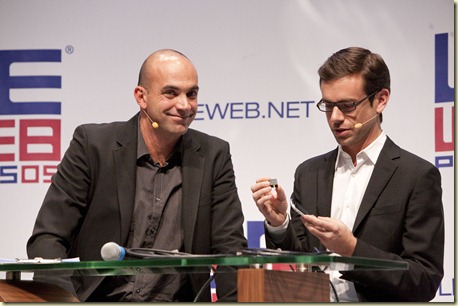
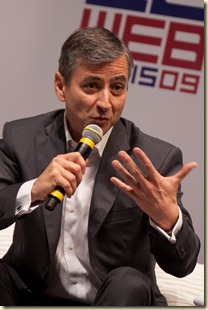
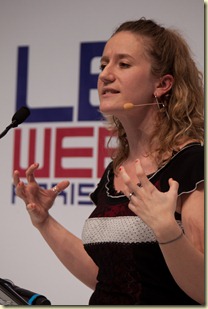
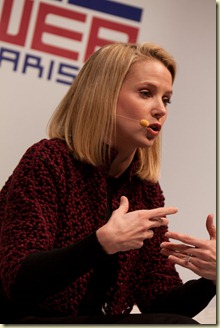
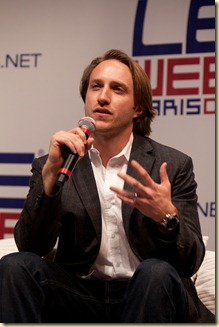
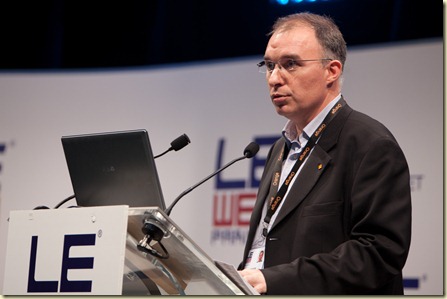
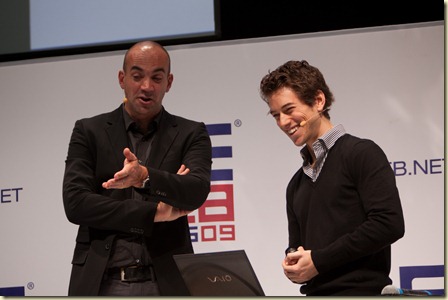
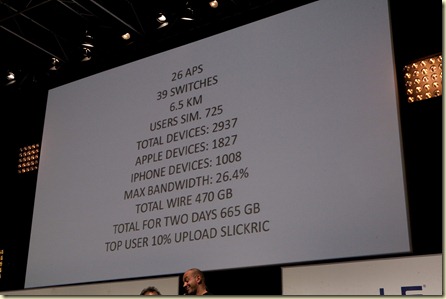
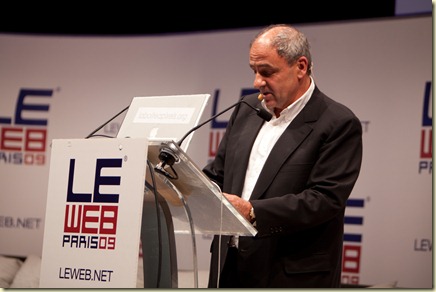




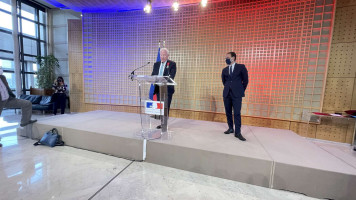
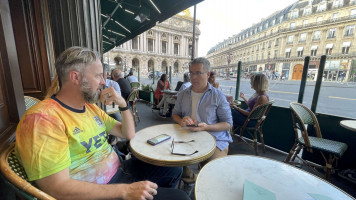

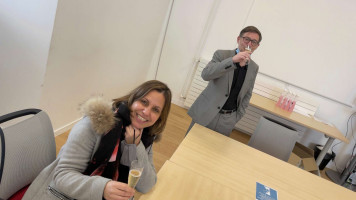



















 Articles
Articles
This comment maybe of interest the next LeWeb edition. But it could be also irrelevant in this post. If so, please apologize, and dot take it into account.
In the context of the MNEMOSINE ( http://www.mnemosine.org) project, my small company CRIMERE ( http://www.crimere.com) is looking for investors / partners involved in the cloud business. We would like to send them an executive summary.
We tried to build a list of players that could be in the scope of this project, but they are too numerous. A post at my blog has been created to manage the list http://www.crimere.com/blog/jean-marc/?p=1158. Please, feel free commenting or emailing me to provide a contact for this purpose.